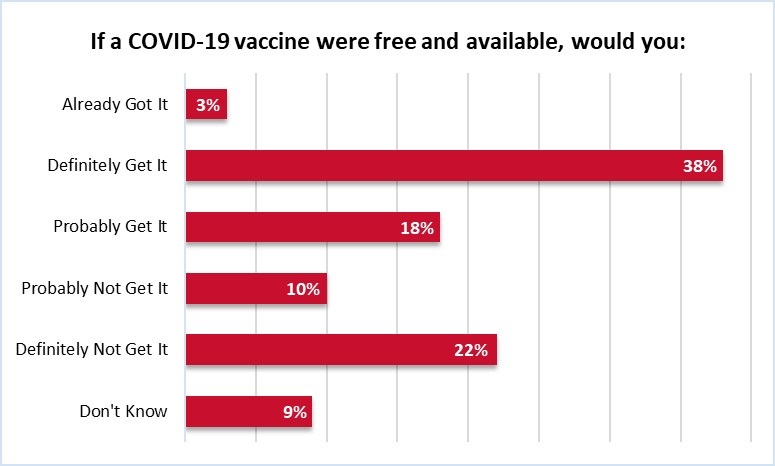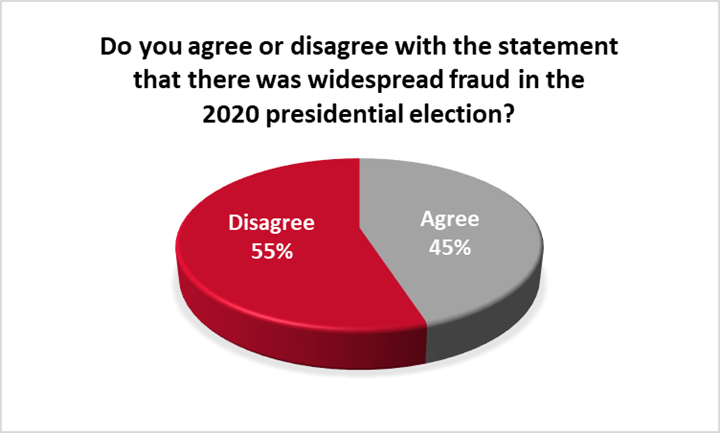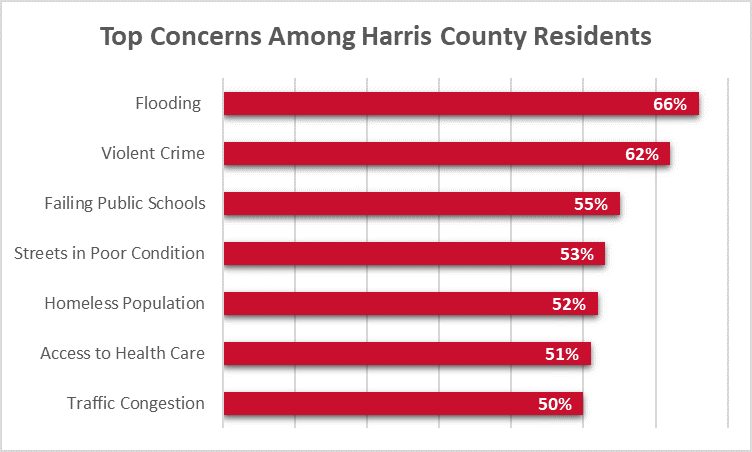Texas Policy & Politics 2021
As always, Texas legislators have an array of policies and trade-offs to consider during the 2021 legislative session. And given the projected budget deficit resulting from the COVID-19 pandemic and dropping revenues from oil and gas production, tough decisions will be made in the Pink Dome this year. What do Texans think about the pressing issues facing our state? What potential revenue enhancements do they support and oppose? In a time of political polarization, are there any areas of partisan agreement? To answer these questions and more, the Hobby School of Public Affairs at the University of Houston conducted an online survey among Texans 18 and older. Fielded between Jan. 12 and Jan. 20, the 1,329 respondents were matched to a sampling frame on gender, age, race/ethnicity and education and are representative of the Texas adult population. An oversample of Harris County residents was also collected and will be used in the last two reports focusing on the state’s most populous county.
The results of this survey will be presented in six separate reports: Legislative Issues; State Budget; Texans and the COVID-19 Vaccine; Political Attitudes and Evaluations; Issue Priorities and Evaluations in Harris County; and Texas versus Harris County: A Comparison of Policy Preferences.
Report One. Texas Policy & Politics 2021: Legislative Issues
This report examines the views of Texans on five different types of legislation that are presently being debated in the Texas Legislature: political reforms, criminal justice reforms, marijuana and casino legalization, and Medicaid expansion. It also explores the preferences of the residents of the nation’s largest producer of oil and natural gas regarding the directions they believe the nation should go in terms of future sources of energy.
Highlights
- The George Floyd Act criminal justice reform is supported by 72% of Texans, with 52% strongly supporting it.
- Two-thirds or more (70%) of Texans support reforms that would create an Independent Redistricting Commission.
- Texans favor the expansion of solar power plants (69%) and wind turbine farms (63%) as sources of energy in the United States.
- More than two-thirds (69%) of Texans support the expansion of Medicaid under the Affordable Care Act.
- Nearly seven in 10 (69%) of Texans support banning the use of public funds by local governments to hire lobbyists.
- The adoption of online voter registration is favored by 66% of Texans.
- More than three-fifths (61%) of Texans support reforms that would either make the possession of small amounts (28%) or any amount (33%) of marijuana legal for any purpose.
- Allowing casino gambling in Texas similar to that which exists in Nevada and Louisiana is supported by more than half of Texans (58%).
Read Report One to learn more about where Texans stand on these proposed reforms, including differences of opinion when considering gender, age, race/ethnicity and partisanship.
Media Release January 27, 2021
Report Two. Texas Policy & Politics 2021: State Budget
The report on the state budget examines the views of Texans on a variety of options to generate more tax revenue for the state, a group of proposals for sales tax exemptions being considered during the 2021 legislative session and preferences for using the state’s Rainy Day Fund to cover none, some or all of the current biennial budget’s $1 billion deficit.
Highlights
- The most popular revenue enhancement option is the adoption of a vaping and electronic cigarette tax, which is supported by 84% of Texans, with almost two-thirds (65%) strongly supporting it.
- The most unpopular revenue enhancement option is the adoption of a state income tax, which is opposed by 82% of Texans, including 71% who strongly oppose it.
- A proposal to close the loopholes in the state’s current property tax appraisal legislation allowing large companies to lower their property taxes is supported by 83% of Texans.
- More than four-fifths of Texans (82%) believe the Texas Legislature should tap the state’s Rainy Day Fund for some amount of funds to help cover the current budget cycle’s $1 billion deficit.
- More than seven in 10 Texans (72%) support an increase of the current state tax on cigarettes and other tobacco products.
- The legalization and subsequent taxation of casino gambling is supported by 70% of Texans.
- Legalizing and taxing the sale of marijuana is supported by 66% of Texans.
- The granting of sales tax exemptions for a range of purchases are very popular among Texans, with a tax exemption on college textbooks the most popular option with 89% of support.
Read Report Two to learn more about where Texans stand on these proposed revenue enhancements, tax exemptions and the Rainy Day Fund, including differences of opinion when considering gender, age, race/ethnicity and partisanship.
Media Release January 27, 2021
Report Three. Texas Policy & Politics 2021: Texans and the COVID-19 Vaccine
This report examines the attitudes and preferences of Texans related to the COVID-19 vaccine. It explores their views regarding the vaccine and reasons of concern among those uncertain about getting vaccinated. Also included is the extent to which Texans view the vaccination process as either a personal choice or a societal obligation and their opinions on the autonomy of Texas county and city governments to combat the COVID-19 pandemic.
Highlights
- More than two-fifths of Texans (41%) are near certain to be vaccinated when they have the opportunity to do so, including those who have already been vaccinated (3%) along with those who definitely plan on getting vaccinated (38%).

- Three-fifths of Texans are not certain about getting vaccinated, including nearly a third who say they either will definitely not get vaccinated (22%) or probably will not get vaccinated (10%).
- The most common major reasons provided for reluctance in getting the vaccine are that the vaccine is too new and the respondent wants to wait and see how it works for other people (61%) combined with the reason that they are worried about possible side effects (60%).
- Nearly half of all Texans who were not certain to get vaccinated listed a lack of trust in the government (47%) and pharmaceutical companies (46%) as major reasons for their uncertainty.
- Texans are nearly evenly split between those who believe getting vaccinated is a matter of personal choice (51%) and those who believe that getting vaccinated is part of everyone’s responsibility to protect the health of others (49%).
- Close to half of Texans (48%) assert that the state’s counties and cities should have a greater amount of autonomy to combat the COVID-19 pandemic than they presently have.
Read Report Three to learn more about where Texans stand on the COVID-19 vaccine, including differences of opinion when considering gender, age, race/ethnicity and partisanship.
Media Release February 2, 2021
Report Four. Texas Policy & Politics 2021: Political Attitudes and Evaluations
This report examines Texans’ favorability ratings of a dozen state and national politicians and provides Texans’ opinions regarding the allegations of the existence of widespread voter fraud in the 2020 presidential election. The report also covers support for and opposition to the January 6 storming of the U.S. Capitol by followers of then President Donald Trump, in protest of the certification of President Joe Biden’s Electoral College victory.
Highlights
- The four Texas and national politicians with the highest proportion of favorable opinions are President Joe Biden (41%), and Governor Greg Abbott, Vice President Kamala Harris, and former President Donald Trump each at 39%.
- Former President Donald Trump has the highest proportion of unfavorable ratings by a narrow majority of Texans (51%), followed by U.S. Senator Ted Cruz (47%), Vice President Kamala Harris (43%), and President Joe Biden (42%).
- The four politicians who have the highest net favorability rating (the sum of favorability ratings minus the sum of non-favorability ratings) among Texans are Congressman Dan Crenshaw, former San Antonio Mayor Julián Castro, Congressman Joaquín Castro, and Governor Greg Abbott.
- 55% of Texans do not believe voter fraud occurred in 2020.

- 87% of Democrats disagree with the statement that there was widespread voter fraud in the 2020 presidential election.
- 83% of Republicans agree with the statement that there was widespread voter fraud in the 2020 presidential election.
- Almost three-fourths of Texans (73%) strongly oppose the storming of the U.S. Capitol to protest the certification of President Biden’s Electoral College victory by the U.S. Congress.
- In Texas, 89% of Democrats strongly oppose the events of January 6 compared to 75% of Independents and 51% of Republicans.
Read Report Four to learn more about where Texans stand on these politicians and occurrences, including differences of opinion when considering gender, age, race/ethnicity, education and partisanship.
Media Release February 4, 2021
Report Five. Texas Policy & Politics 2021: Issue Priorities and Evaluations in Harris County
This report examines the extent to which Harris County residents are concerned about two dozen different issues as well as their evaluation of a select group of 18 Harris County politicians.
Highlights
- When presented with 24 issues, 66% of residents chose flooding as a major concern followed by violent crime at 62%.

- Other issues that at least half of Harris County residents listed as major concerns include failing public schools (55%), streets in poor condition (53%), the homeless population (52%), access to health care (51%) and traffic congestion (50%).
- One issue among Latinos’ top six concerns, but not among the top six of either Anglos or African Americans, is access to health care.
- African Americans tend to list equity issues as their top major concerns, placing economic inequality, racial discrimination and the homeless population among their top six.
- African Americans (59%) are significantly more likely than Latinos (44%) and whites (39%) to list police violence as a major concern.
- Millennials and members of Generation Z (56%) are significantly more likely than members of the Silent Generation/Baby Boomers (43%) and Generation X (40%) to list racial discrimination as a major concern.
- African Americans (50%) are significantly more likely than whites (33%) to list the lack of good paying jobs as a major concern.
- Women are significantly more likely than men to consider the following issues to be a major concern: Access to health care (62% . 40%), the homeless population (62% 42%), economic inequality (55% 41%), racial discrimination (55% 41%) and racial inequality (52% 40%).
- The politicians with the highest net favorability ratings (the sum of very favorable and somewhat favorable ratings minus the sum of somewhat unfavorable and very unfavorable ratings) are Houston Chief of Police Art Acevedo (+33%), Harris County Sheriff Ed Gonzalez, (+32%), former Harris County Judge Ed Emmett (+31%), Harris County Judge Lina Hidalgo (+27%) and Harris County Commissioner Adrian Garcia (+22%).
Read Report Five to learn more about where Harris County residents stand on these issues and politicians, including differences of opinion when considering gender, age, race/ethnicity, education and partisanship.
Media Release February 10, 2021
Report Six. Texas Policy & Politics 2021: A Comparison of Harris County and Texas
This report compares the attitudes, opinions and evaluations of respondents living in Harris County to those of the residents of the 253 other Texas counties. By and large, Harris County residents do not possess attitudes, opinions and evaluations that are statistically different from those of other Texans with a few exceptions.
Highlights
- Harris County residents (65%) are significantly more likely than other Texans (55%) to strongly support a ban on the use of chokeholds by police officers.
- Harris County residents (80%) are significantly more likely than other Texans (68%) to support the expansion of Medicaid under the Affordable Care Act in Texas.
- Harris County residents (60%) are significantly less likely than other Texans (72%) to strongly oppose the adoption of a state income tax.
- Harris County residents (58%) are significantly more likely than other Texans (47%) to believe that Texas counties and cities should have more autonomy than they presently possess to combat the COVID-19 pandemic.
- There are no significant differences between Harris County residents and those living in the other 253 Texas counties in regard to their preferences about the 10 different sources of U.S. energy. While Houston is considered the fossil fuel energy capital of the world and its economy is substantially driven by fossil fuel production, Harris County residents’ opinions about energy sources do not differ greatly from other Texans.
- Harris County residents are significantly more likely to have a very favorable view of President Joe Biden (41%) and Vice President Kamala Harris (42%) than residents of the other 253 counties (24% and 21%, respectively).
Read Report Six to learn more about where Harris County residents stand on issues and politicians in comparison to other Texans, including differences of opinion when considering gender, age, race/ethnicity, education and partisanship.
Research Team
Kirk P. Watson, Dean, Hobby School of Public Affairs
Renée Cross, Senior Director & Researcher, Hobby School of Public Affairs
Mark P. Jones, James A. Baker III Institute for Public Policy's Fellow in Political Science, Rice University; Senior Research Fellow, Hobby School of Public Affairs
Pablo M. Pinto, Director, Center for Public Policy; Associate Professor, Hobby School of Public Affairs
Savannah Sipole, Research Associate, Hobby School of Public Affairs
Agustín Vallejo, Post-Doctoral Fellow, Hobby School of Public Affairs
Additional Texas Reports
Texas Democratic Primary Election 2020 Survey
The Texas Voter ID Law and the 2016 Election: A Study of Harris County and Congressional District 23
The Texas Voter ID Law and the 2014 Election: A Study of Texas’s 23rd Congressional District